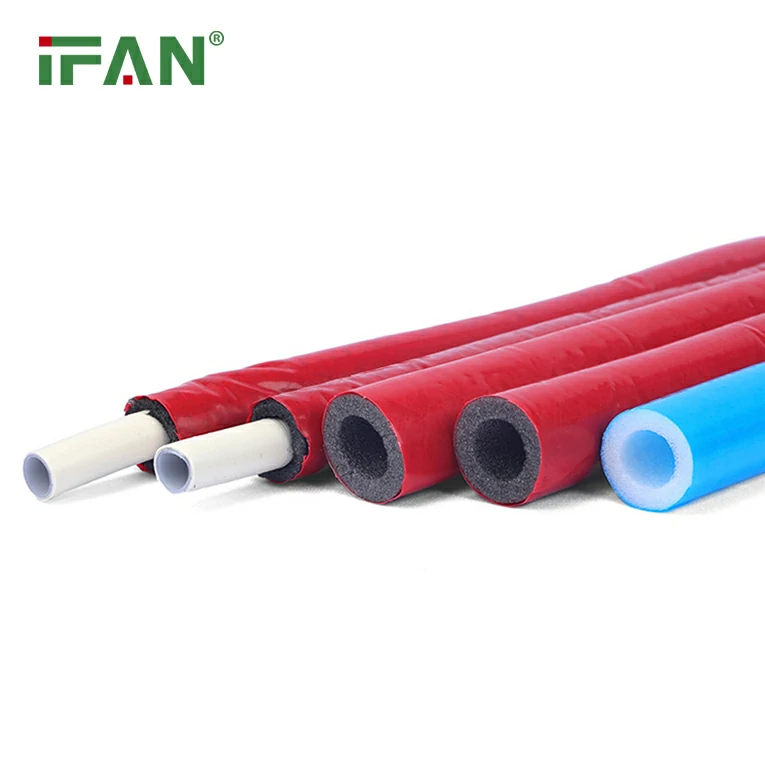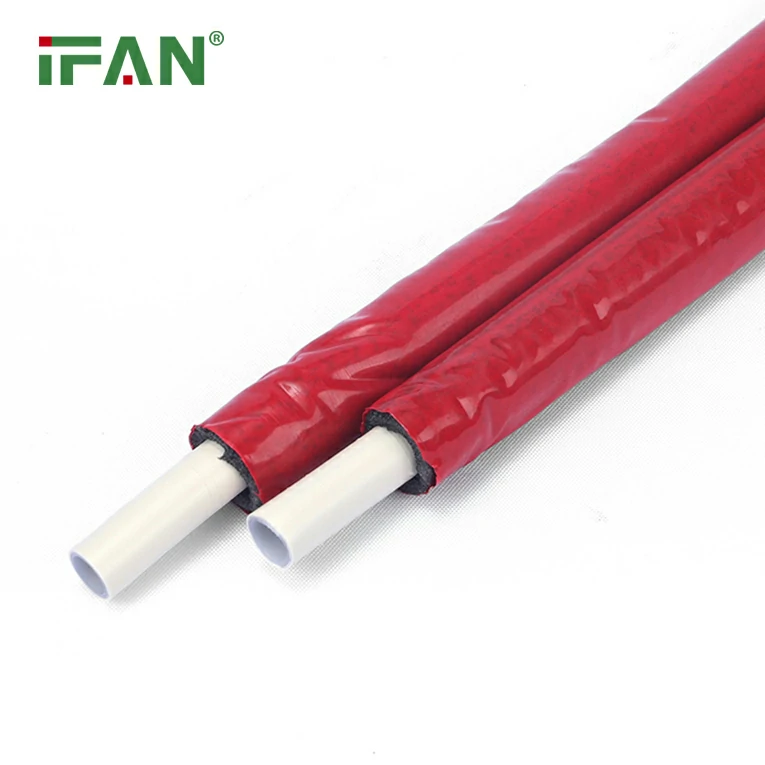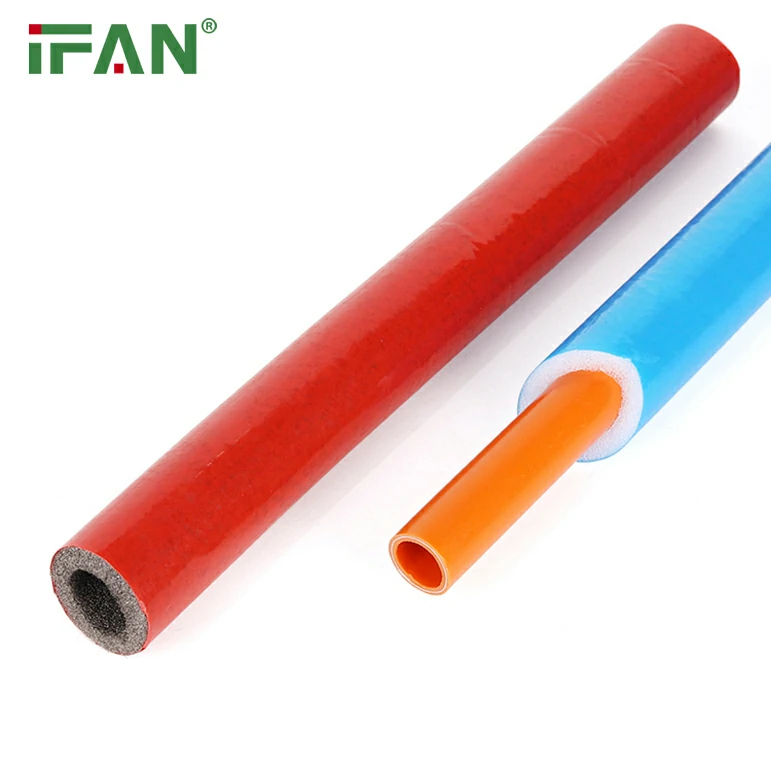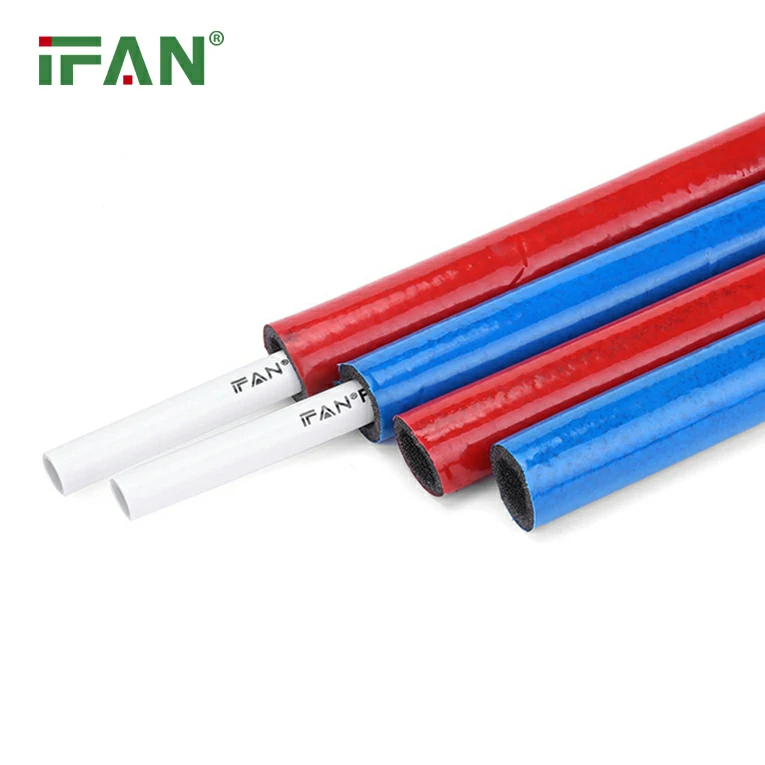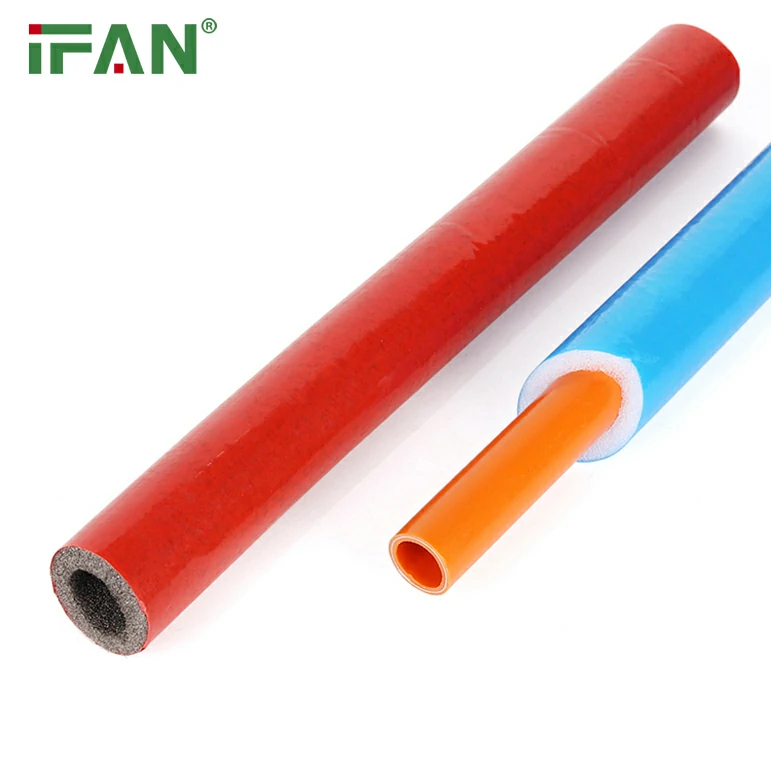As global concerns about climate change and sustainability continue to rise, industries are looking for innovative solutions to reduce their environmental impact. The plumbing sector is no exception. Uponor, a leader in plumbing solutions, has introduced a revolutionary product that is set to change the industry—bio-based PEX pipes. These pipes, made from renewable resources, reduce the carbon footprint by an impressive 90% compared to traditional PEX pipes. In this article, we will explore the significance of this groundbreaking innovation, its environmental benefits, and its potential applications.
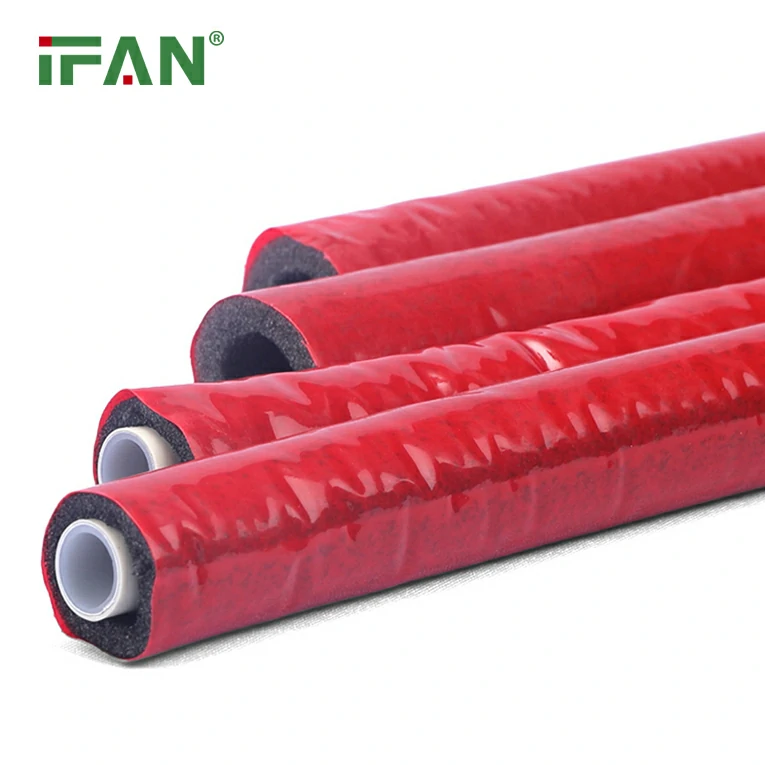
What is PEX Pipe?
PEX (cross-linked polyethylene) pipe has become one of the most popular choices for plumbing systems due to its durability, flexibility, and ease of installation. It is resistant to corrosion, scaling, and is more flexible than rigid alternatives such as copper and PVC. PEX is commonly used for residential water supply lines, underfloor heating, and even in some commercial plumbing applications.
However, while PEX has many advantages in terms of performance, the material’s production has been associated with a significant environmental impact. Traditional PEX is made from petroleum-based polyethylene, a non-renewable resource, which contributes to carbon emissions during its production process.
This is where Uponor’s new bio-based PEX pipe comes in. By incorporating renewable, plant-based materials, Uponor’s bio-based PEX pipe offers a more sustainable alternative without compromising on performance.
Bio-Based PEX Pipe: A Sustainable Solution
Uponor’s bio-based PEX pipe is a cutting-edge innovation in the plumbing industry. Unlike traditional PEX, which is derived from fossil fuels, bio-based PEX is produced using renewable, plant-based raw materials. The most significant advantage of bio-based PEX is its dramatic reduction in carbon emissions during the production process. Uponor claims that their bio-based PEX pipe reduces the carbon footprint by an astounding 90%.
This reduction is possible because bio-based PEX uses biopolymers made from renewable resources, such as sugarcane, corn, and other bio-based materials, instead of petroleum-based polyethylene. By replacing petroleum with renewable sources, bio-based PEX significantly lowers greenhouse gas emissions associated with the manufacturing process.
Environmental Benefits of Bio-Based PEX
The environmental benefits of bio-based PEX extend far beyond just the reduction in carbon emissions during production. Below are some of the key environmental advantages:
1. Reduced Carbon Footprint
As mentioned earlier, Uponor’s bio-based PEX pipe reduces the carbon footprint by 90% compared to traditional PEX. The use of renewable plant-based materials, instead of petroleum, dramatically lowers the greenhouse gas emissions associated with the manufacturing of PEX pipes. This reduction in carbon emissions helps mitigate the effects of climate change and contributes to a more sustainable future.
2. Conservation of Non-Renewable Resources
Bio-based PEX reduces the dependency on fossil fuels, which are non-renewable resources. By using plant-based materials, Uponor is helping to conserve petroleum and other fossil fuels that are typically used to create traditional PEX. This is crucial as the world moves toward reducing its reliance on non-renewable resources and shifting towards more sustainable alternatives.
3. Energy-Efficient Manufacturing Process
The production of bio-based PEX pipes requires less energy than traditional PEX manufacturing processes. By adopting energy-efficient production methods, Uponor is reducing the overall environmental impact of its products. Less energy usage means fewer carbon emissions and a smaller environmental footprint throughout the entire lifecycle of the product.
4. Recyclability and Sustainability
Uponor’s bio-based PEX pipes are designed with sustainability in mind. Not only are the raw materials renewable, but the pipes themselves are fully recyclable. This means that at the end of their lifecycle, the pipes can be repurposed into new products, reducing waste and contributing to a circular economy.
Applications of Bio-Based PEX Pipe
Bio-based PEX pipes are suitable for a wide range of applications in both residential and commercial settings. The flexibility and durability of bio-based PEX make it an ideal material for various plumbing systems. Here are some of the key applications of bio-based PEX pipes:
1. Residential Plumbing
Bio-based PEX is an excellent choice for residential plumbing systems. The flexibility of PEX allows for easier installation in tight spaces, and it can be used for both hot and cold water systems. Bio-based PEX offers the same performance benefits as traditional PEX but with the added advantage of a significantly lower environmental impact.
2. Underfloor Heating
Underfloor heating systems are becoming increasingly popular due to their energy efficiency and comfort. Bio-based PEX is ideal for use in radiant heating systems, where warm water circulates through pipes installed under the floor. The flexibility of the pipe makes it easy to install in various floor types, and its durability ensures that the system will perform efficiently for many years.
3. Commercial and Industrial Applications
In commercial and industrial applications, bio-based PEX pipes can be used for water distribution, heating, and cooling systems. Hotels, office buildings, hospitals, and schools can all benefit from the energy efficiency and sustainability of bio-based PEX. The pipes can also be used in large-scale industrial heating and cooling systems, where their resistance to corrosion and ease of installation make them an ideal choice.
4. Snow Melting Systems
Bio-based PEX is also commonly used in snow melting systems. These systems are often installed in driveways, walkways, and roads to prevent snow and ice accumulation. The flexibility of bio-based PEX allows it to be installed in various configurations, and its durability ensures that it will withstand harsh weather conditions for years.
Performance and Durability
Bio-based PEX pipes offer the same level of performance and durability as traditional PEX pipes. They are resistant to corrosion, scaling, and freeze damage. The pipes are designed to withstand high temperatures and are ideal for both hot and cold water applications.
Bio-based PEX is also flexible, making it easier to install than rigid materials like copper and PVC. The flexibility allows for fewer fittings and joints, reducing the potential for leaks and lowering installation costs.
Key Benefits of Bio-Based PEX:
- Durability: Resistant to corrosion, scaling, and freezing.
- Flexibility: Easy to install, especially in tight spaces.
- Energy Efficiency: Ideal for radiant heating and snow melting systems.
- Sustainability: Made from renewable resources, with a 90% reduction in carbon footprint.
Why Bio-Based PEX is the Future of Plumbing
The plumbing industry is undergoing a shift towards more sustainable materials, and Uponor’s bio-based PEX is at the forefront of this change. With its impressive reduction in carbon emissions and its ability to perform just as well as traditional PEX, bio-based PEX offers a more sustainable solution without compromising on quality.
As consumers and businesses increasingly demand environmentally friendly products, bio-based PEX is becoming an attractive option for new construction projects and plumbing system retrofits. The long-term benefits of bio-based PEX—such as reduced environmental impact, lower energy consumption, and recyclability—make it a smart choice for those looking to invest in sustainable infrastructure.
Conclusion
Uponor’s bio-based PEX pipe represents a significant advancement in the plumbing industry. By reducing the carbon footprint by 90%, it provides a sustainable and eco-friendly alternative to traditional PEX pipes. With applications ranging from residential plumbing to commercial and industrial systems, bio-based PEX is poised to become a key player in the future of sustainable plumbing solutions. As demand for eco-friendly products continues to rise, Uponor’s bio-based PEX is leading the way towards a greener, more sustainable future.
Frequently Asked Questions (FAQ)
1. What is bio-based PEX pipe?
Bio-based PEX pipe is a type of plumbing pipe made from renewable, plant-based materials rather than petroleum-based polyethylene. It reduces the carbon footprint by 90% compared to traditional PEX pipes.
2. How does bio-based PEX differ from traditional PEX?
Bio-based PEX is made from renewable resources, such as sugarcane or corn, whereas traditional PEX is made from petroleum. This change in raw materials reduces the carbon footprint and overall environmental impact of the pipes.
3. Is bio-based PEX as durable as traditional PEX?
Yes, bio-based PEX offers the same level of durability, flexibility, and resistance to corrosion, scaling, and freeze damage as traditional PEX pipes.
4. Where can bio-based PEX pipes be used?
Bio-based PEX is ideal for residential plumbing, radiant heating systems, snow melting systems, and commercial and industrial plumbing applications. Its flexibility and durability make it suitable for a wide range of uses.
5. What are the environmental benefits of bio-based PEX?
Bio-based PEX reduces carbon emissions by 90%, conserves non-renewable resources, and uses energy-efficient manufacturing processes. Additionally, it is recyclable, contributing to a circular economy and reducing waste.

